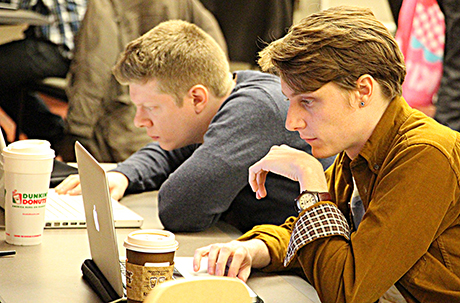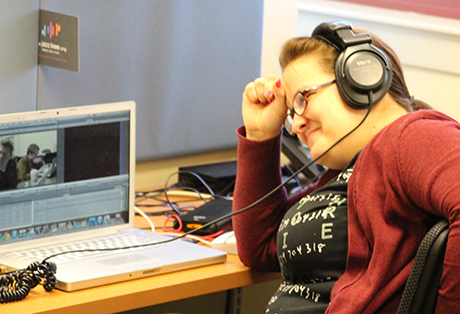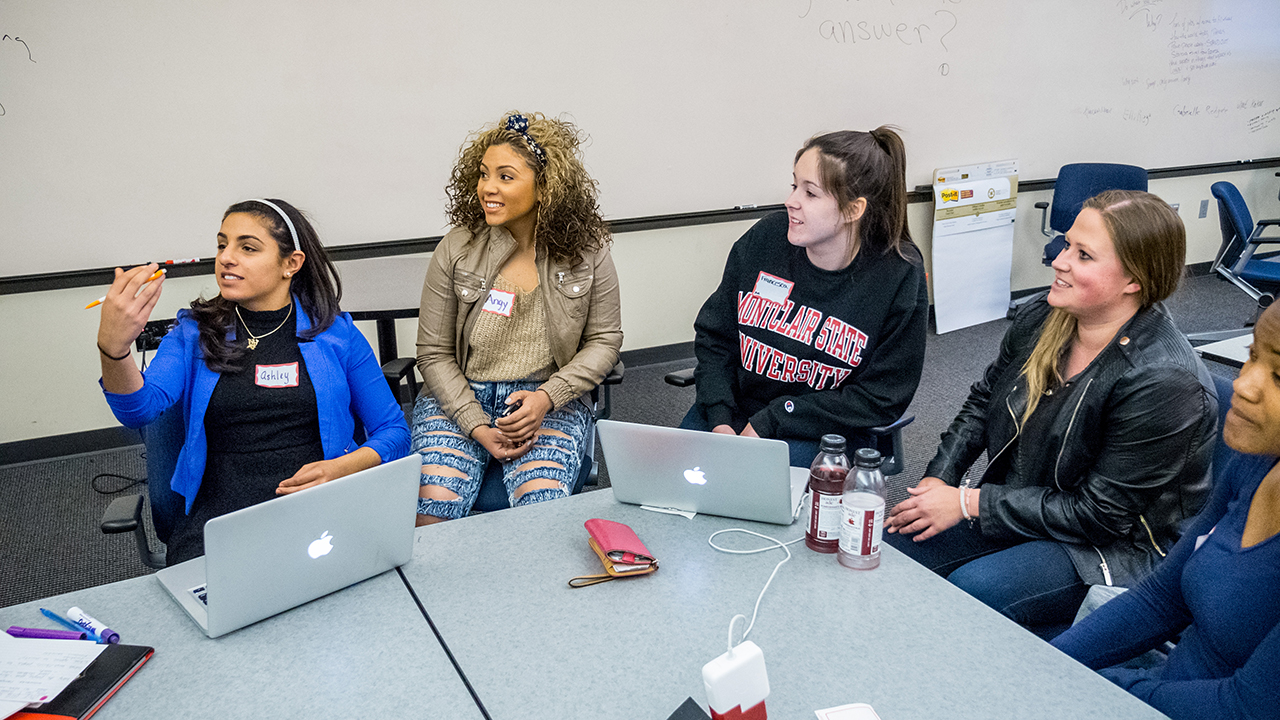Hacked! Campus Hackathons Spur Innovations

Montclair State has been hacked – and that’s a good thing. Campus hackathons have generated innovative solutions to all kinds of problems – from creating a forum to report bias crimes to finding new uses for public data.
In April, women students gathered in the ADP Center at University Hall, joining others on campuses around the world for the International Women’s Hackathon sponsored by Microsoft Research.
Students worked together in interdisciplinary teams to address issues – like preventing texting while driving and encouraging careers in the sciences for girls – through technology.
“Our teams created amazing solutions,” says Director of Equity and Diversity Esmilda Abreu-Hornbostel. For instance, the No Texting team’s app, which was pitched to the judges on the Hackathon’s last day, rewards people for not texting while driving with points toward their favorite stores or causes.
Solutions developed at the event reach far beyond campus. “The tools these girls and women from across the globe built will help NGOs make a worldwide impact for others and allow students to see themselves as true agents of change,” notes Abreu-Hornbostel.
“The hackathon brought alumni, business leaders, mentors and students together to leverage our strengths for the greater good,” says Nicole Bryan, director of Corporate Social Responsibility Initiatives at the School of Business.
Our teams created amazing solutions.
Esmilda Abreu-Hornbostel

Women aren’t the only ones who’ve been hacking away at Montclair State.
In 2013, the University hosted Hack Jersey, the state’s first journalist-tech hackathon, sponsored by the NJ News Commons at Montclair State in partnership with Knight-Mozilla OpenNews. During the 24-hour competition, approximately 80 journalists and software coders worked in teams to create groundbreaking news products and apps that could ultimately transform the way New Jersey residents use data and experience news.
Initially, Debbie Galant, director of the NJ News Commons, co-created Hack Jersey with then Digital First Media Data Editor Tom Meagher to organize hackathons. “It has since become an organization that goes beyond hackathons,” Galant says. “We’ve joined the civic hacking community and the state’s data journalists to foster storytelling through data, data transparency and building cool stuff.”
Projects at Hack Jersey ranged from an app that collects gun crime and homicide data by ZIP code and a site comparing the cost of medical procedures to CrashDataNJ, a visualization of state transportation data on accidents along the Garden State Parkway
“The digital tools have created a whole new dimension for the practice of journalism,” says Galant.
